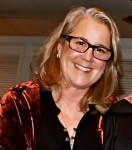
When JFK was shot, my parents were on the parade route. Friends were at the Dallas Trade Mart awaiting Kennedy’s arrival for a highly anticipated speech. I was sitting in a Dallas classroom at Zion Lutheran Elementary School. So many of us will never forget where we were, what we felt the day Kennedy died; the memory seared into our personal and national psyches. Working as a psychologist, I’ve often heard Millennials describe how the 9/11 tragedy impacted their capacity to trust life – to live fully into their futures. Maybe JFK’s assassination was my 9/11. Both events changed me.
James Marcia’s (1966) research in adolescent development says that a necessary phase of identity formation is experiencing the “fall of the gods” – to have idealizations challenged by reality. But when the ability to idealize life is crushed at such an early age, what then? The day we lost JFK, I was still a kid. At 7, I still believed in Santa and the Land of Oz, certainly in Jesus. The curtain was torn open that day for everyone, regardless of age. It was the first time I saw my parents helpless, confused, seemingly lost. They didn’t know how to calm me because they were dazed. We stayed in front of the T.V. watching the saga unfold in downtown Dallas, only 10 miles from our house. It was the first time I saw both of my parents openly crying. It was the first time I saw someone murdered on television. I watched as Oswald shot Kennedy and Ruby shot Oswald.
So much broke loose that day. We felt unsafe and somehow responsible. While studying in Europe, I was often
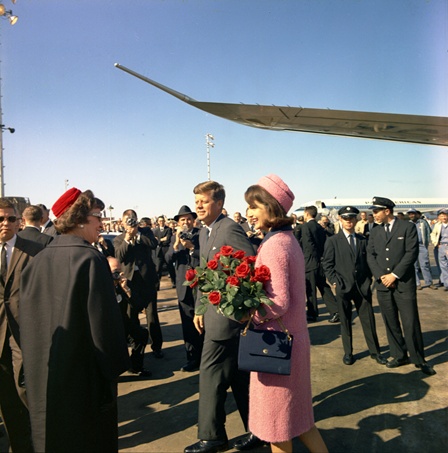
asked where I was from. I’d say, “Dallas.” My potential new friend would quip, “You shot J.R.” I heard it as, “You shot JFK.” Maybe Dallas took on a mantle of guilt or responsibility that day. Mayor Cabell, grieving at a City Hall meeting, told the Dallas Times Herald that a “mentally deranged” Oswald acted alone. He rejected the idea of a permanent penance for Dallas. Chief Justice Warren and others suggested that penance was in order; penance for partisan hatred and bigotry that may have driven such an act of violence.
Scholars differ on whether or not living through such tragic events significantly impacts the generation who experience them. “For millennials, 9/11 is their equivalent of Pearl Harbor. Most were in grade school, and for many, the memories of that day deeply affected their perception of the world and their place in it,” says Michael D. Hais in “Millennial Momentum: How A New Generation is Remaking America.
Like those of us who experienced the JFK assassination, these young adults also recall in vivid detail where they were, what they were wearing, what they felt. That is how post-traumatic memories work on us when we awaken to the reality that our lives are at risk. We feel fear as never before. The impact is powerful. Those who were children on 9/11, according to John Della Volpe of Harvard University’s Institute of Politics, are now part of a generational cohort that is more politically active and patriotic than the prior generation.
The impact of JFK’s assassination may have shown up in my young adulthood as I began volunteering in international development projects with impoverished Kenyan women or when initiating food and clothing distributions in South Central Los Angeles. Could these acts of service have been some unconscious attempt to save my white Southern, Dallas, Texas, soul? Could my leaning toward social service and working as a therapist be, at some level, an expression of how I was changed the day President Kennedy was shot in my hometown? Maybe promoting peace or carrying a sense of responsibility for change rather than serving penance is the best outcome of such unthinkable tragedy. Evidently, the impact of losing her beloved father 50 years ago has shown up in Caroline Kennedy’s life this week. On Tuesday, Caroline announced her decision to serve as the new U.S. Ambassador to Japan. How about that for overcoming… for carrying on a legacy of hope and peace?
Michele McCormick is a resident, writer and practicing psychologist in Laguna. She can be reached at [email protected]


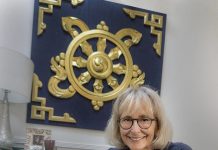
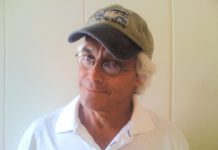
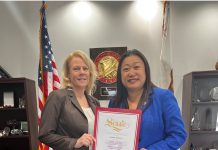
Thank you MIchelle, We learn that the greater and earlier the wounds.. The greater our gifts to the world. Thank you for transforming your wounds into the healing arts you share with us.
[…] Inside Out: The JFK Assassination was my 9/11 […]